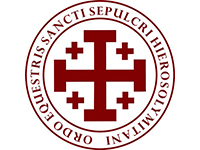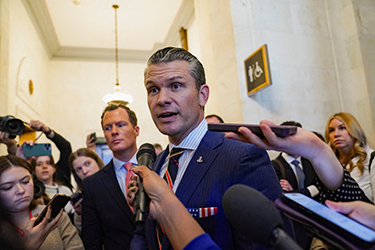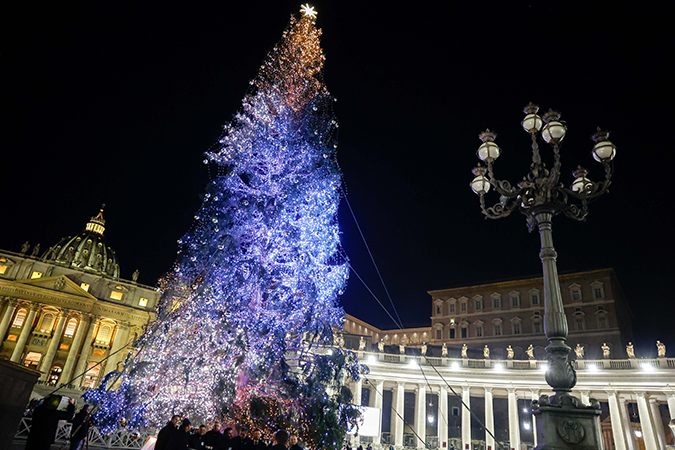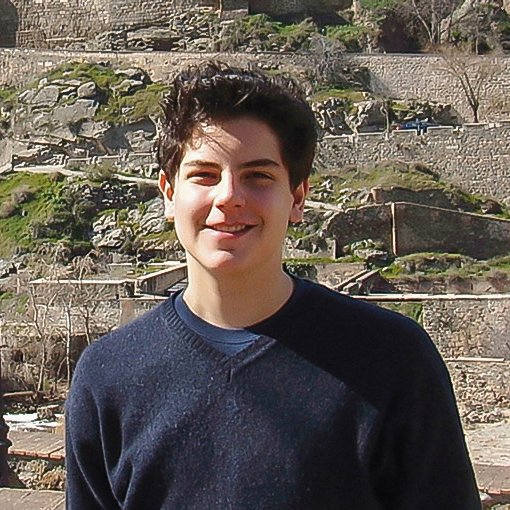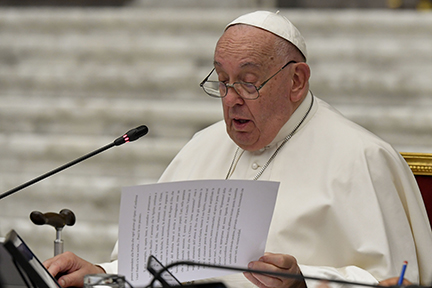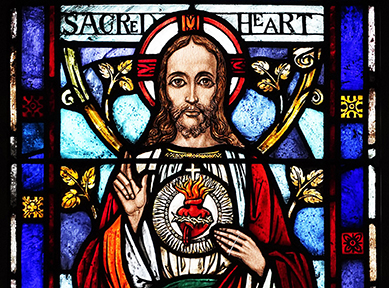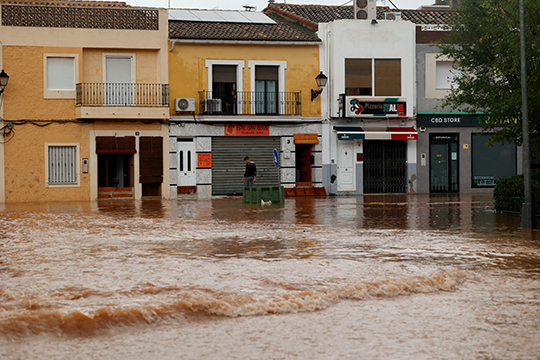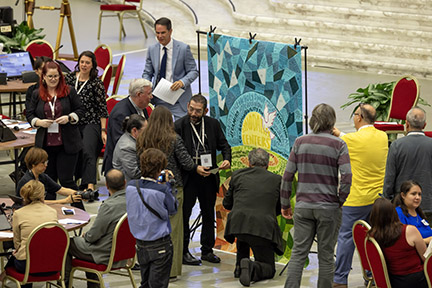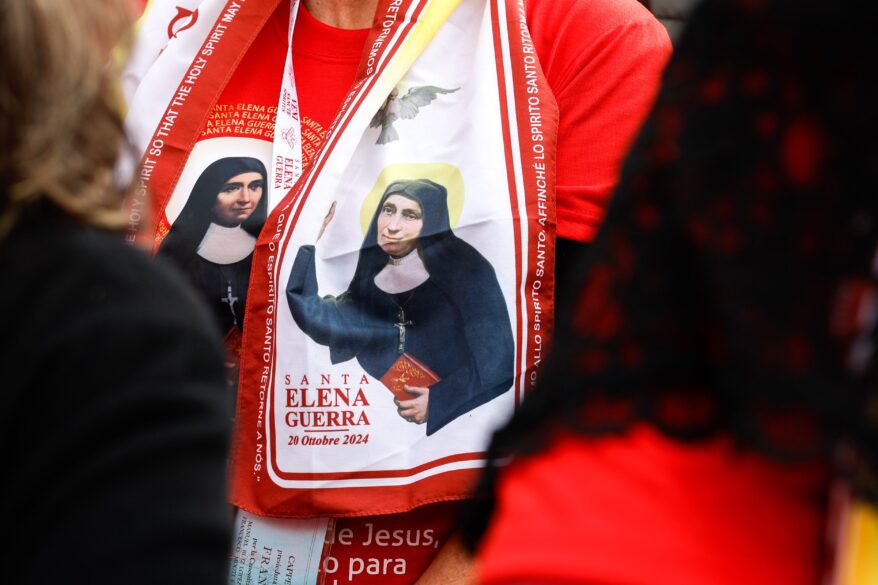
NATION
INDIANAPOLIS (OSV News) – Mary with the Christ Child has long been an iconic Christmas image for cultures and peoples around the world. Starting more than 60 years ago, the U.S. Postal Service began annually issuing Christmas stamps featuring various classic artistic portrayals of the image. This year, the USPS selected as the image for this stamp a painting that has been in the collection of the Indianapolis Museum of Art at Newfields in Indianapolis since 1938. The “Madonna and Child” was created in the workshop of the Italian artist Giovanni Battista Salvi da Sassoferrato in the 17th century. Belinda Tate, the Melvin and Bren Simon director of the museum, said she and the staff were “deeply honored” by having one of its paintings chosen for a Christmas stamp this year. “This selection brings a beloved piece from our collection to a broad audience, allowing us to celebrate its beauty, historical significance and the spirit of the season,” Tate added. A broad audience indeed. The USPS has produced 210 million stamps featuring this painting.
FAIRFAX, Va. (OSV News) – Pro-life organizers aim to inspire pro-life youth attending the national March for Life in Washington Jan. 24 with the merger of two pre-march youth events, announced Nov. 14. The Diocese of Arlington, Virginia, and host of Life is VERY Good since 2009, and the Knights of Columbus and the Sisters of Life, co-hosts of Life Fest since 2022, are joining forces to create one big pro-life rally called Life Fest. The two-day pro-life event will be held Jan. 23-24 at EagleBank Arena on the campus of George Mason University in Fairfax, Virginia, 20 miles southwest of the National Mall and the March for Life. Life Fest 2025 will begin with a night of praise, held the evening before the March for Life with speakers, live music and Eucharistic adoration. The following day, a morning rally and Mass will be held hours before the March for Life. Attendees will have the chance to go to confession and to venerate the relics of Pope St. John Paul II, Blessed Carlo Acutis, the recently beatified Ulma family and Blessed Michael McGivney, founder of the Knights of Columbus. Organizers hope to attract some 8,400 participants to the event each day.
VATICAN
VATICAN CITY (CNS) – There are no second-class Christians, Pope Francis said. The laity, including women, and the clergy all have special gifts to edify the church in unity and holiness. “The laity are not in last place. No. The laity are not a kind of external collaborator or the clergy’s ‘auxiliary troops.’ No! They have their own charisms and gifts with which to contribute to the mission of the church,” the pope said Nov. 20 at his general audience in St. Peter’s Square. Continuing a series of talks on the role of the Holy Spirit in the life of the church, Pope Francis looked at how the Holy Spirit builds up the Body of Christ through the outpouring of charismatic gifts. The Holy Spirit “distributes special graces among the faithful of every rank. By these gifts, He makes them fit and ready to undertake the various tasks and offices which contribute toward the renewal and building up of the church,” he said, quoting from the Second Vatican Council’s Dogmatic Constitution on the Church, “Lumen Gentium.” A charism is “the gift given for the common good, to be useful for everyone. It is not, in other words, destined principally and ordinarily for the sanctification of the person. No. It is intended, however, for the service of the community,” Pope Francis said. “They are ordinary gifts. Each one of us has his or her own charism that assumes extraordinary value if inspired by the Holy Spirit and embodied with love in situations of life,” he said.
VATICAN CITY (CNS) – Pope Francis, who will celebrate his 88th birthday in December, has approved simplified liturgical rites for the death of a pontiff. His body will rest in a zinc-lined wooden casket, according to the new rites. Recent popes had been buried inside a cypress wood coffin surrounded by another coffin made of lead, which was then covered by a third wooden coffin. Vatican News carried a story Nov. 20 about the second edition of the “Ordo Exsequiarum Romani Pontificis” (“Funeral Rites of the Roman Pontiff”); the book updates the rites originally approved by St. John Paul in 1998, technically published in 2000, but released only when St. John Paul died in 2005. Modified versions of the rites were used after Pope Benedict XVI died Dec. 31, 2022. Archbishop Diego Ravelli, master of papal liturgical ceremonies, told Vatican News the revised edition was needed, “first of all because Pope Francis asked, as he himself stated on several occasions, to simplify and adapt some of the rites so that the celebration of the bishop of Rome’s funeral would better express the church’s faith in the risen Christ.”
WORLD
SAN SALVADOR (OSV News) – El Salvador has ordered a former president to stand trial for the 1989 murders of six Jesuits, their housekeeper and her 16-year-old daughter – a notorious crime from the Central American country’s civil war, which has languished in the realm of impunity. A judge in San Salvador issued a Nov. 18 decision ordering former president Alfredo Cristiani, a former congressman and nine others to stand trial as the intellectual authors of the attack on the Jesuits. Cristiani, who was president between 1989 and 1994, was charged with murder, conspiracy and terrorism in 2022. His whereabouts remain unknown, according to media reports. The priests were killed by soldiers in their residence on the campus of the Jesuit-run Central American University – an institution they accused of being infiltrated by guerrillas. The university has long rejected that accusation and demanded justice for the eight victims. Catholics in El Salvador expressed mixed feelings on the decision to bring Cristiani to trial. The judge’s decision came just two days after the 35th anniversary of the Jesuit martyrs’ murders, marked with a Nov. 16 memorial Mass. The slain priests’ memory continues to inspire Catholics in El Salvador and beyond. “The memory of the martyrs is very much alive,” said Jesuit Father Jeremy Zipple, who traveled with a group from Belize for the memorial.
PARIS (OSV News) – Miraculously missed by burning beams falling from the roof on April 15, 2019, and waiting for five years to make it back to Notre Dame Cathedral, the 14th-century statue of the Virgin of Paris returned home Nov. 15, accompanied by thousands of Parisians praying, singing and lighting candles as they walked their Virgin to Paris’ most iconic church, restored after the fire. Since the fire, the statue, also referred to as Virgin and Child, or the Virgin of the Pillar, has been housed near the Louvre in the Church of Saint-Germain l’Auxerrois, from where the procession started at 6 p.m. local time. Transporting the real statue of the Virgin on foot was out of the question for security reasons. Instead, everyone was able to witness her departure by truck, before setting off, with candles and singing, behind a replica, illuminated and decorated with white flowers. The procession followed along the banks of the Seine River toward the Île de la Cité, one of two Parisian islands and home to Notre Dame Cathedral. Arriving in front of the cathedral at around 7 p.m., the pilgrims were greeted by the singing of the Maîtrise Notre Dame, the cathedral’s choir. The archbishop blessed the original statue, with the crate carrying it opened so that it could be seen. The truck then entered the cathedral’s construction site so the original statue could be installed inside the cathedral.

